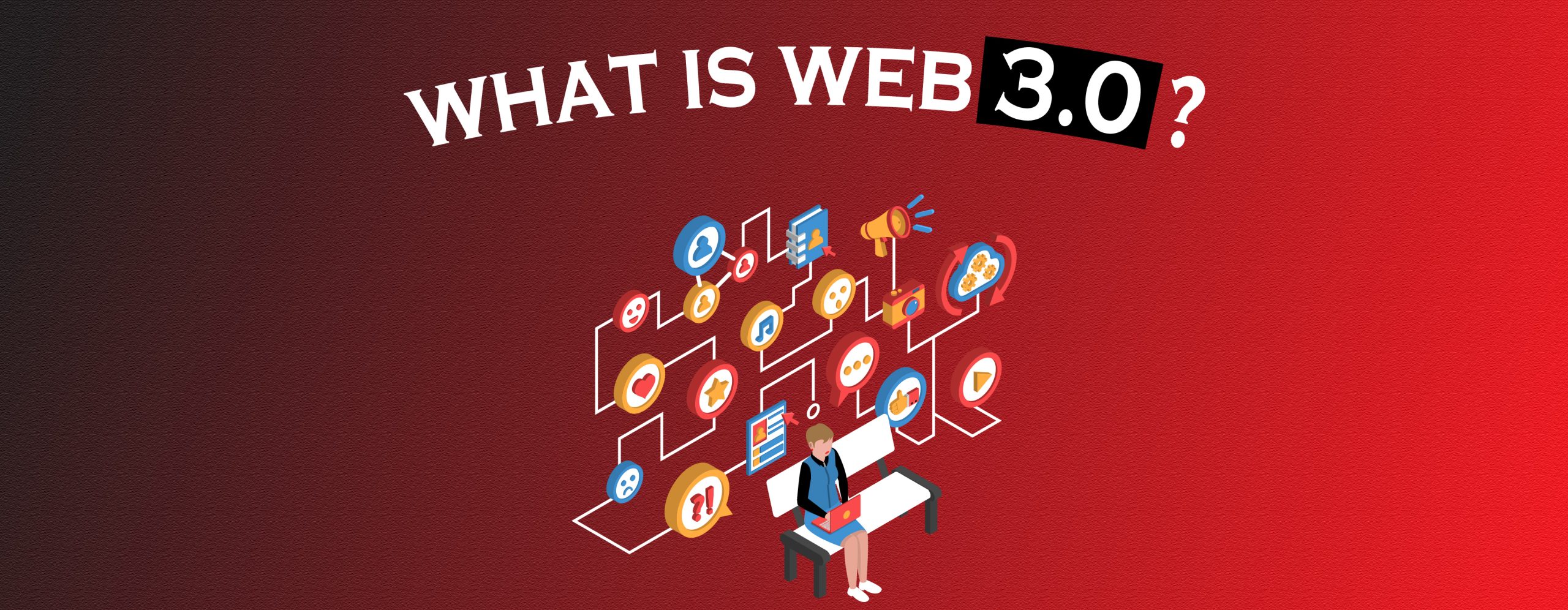
Web 3.0 has the ability to bring about a huge paradigm change and be just as disruptive as Web 2.0. Web 3.0 is built on the essential principles of decentralization, openness, and enhanced user usefulness. The next phase of internet development is called Web 3.0, or simply Web 3. Imagine a new sort of Internet where everything you consume is more tailored than ever before and where everything you type and say, whether through text, speech, or other media, is precisely translated and understood. You are about to embark on a new phase in the development of the Internet. It is known as Web 3.0. Let’s read the full article to have more details about web 3.0.
The third generation of web technologies is known as Web 3.0 (Web3). The World Wide Web, commonly referred to as the web, serves as the basic building block of the internet by offering website and application services. There isn’t a single, accepted definition of Web 3.0 because it is continually changing and being defined. However, it is evident that Web 3.0 will heavily emphasize decentralized applications and utilize blockchain-based technology. Artificial intelligence (AI) and machine learning will both be used in Web 3.0 to enable smarter, more adaptive applications.
Also check : WHAT IS A WEB APPLICATION?
Your data is kept in web3 on your cryptocurrency notecase. Through your wallet, you will connect with apps and communities on web3, and you may take your data with you when you log out. You have the option to decide whether to commercialize the data because you are the one who owns it. Decentralized autonomous entities that execute apps will be present in Web3 (DAOs). As a result, decisions are now made by users who hold governance tokens instead of by a centralized authority. These tokens can be obtained by participating in the upkeep of these decentralized programs or by purchasing them.
Although Web 3.0 has not yet been given a defined definition, it does have certain distinguishing characteristics.
Through the use of technologies based on Semantic Web principles and natural language processing, Web 3.0 will enable computers to comprehend information similarly to humans. Web 3.0 will also make use of machine learning, a subset of artificial intelligence (AI) that mimics human learning by using data and algorithms, gradually improving its accuracy. Instead of just targeted advertising, which makes up the majority of present efforts, these capabilities will enable computers to deliver faster and more relevant outcomes in a variety of fields like medical development and new materials.
Information might be stored concurrently in different locations and thus be decentralized with Web 3.0 because it would be found based on its content. This would give users more autonomy by dismantling the huge datasets currently kept by internet goliaths like Meta and Google.
Web 3.0 will be trustless (i.e., the network will allow users to connect directly without going via a trusted intermediary) and permissionless in addition to being decentralized and built on open source software (meaning that anyone can participate without authorization from a governing body). Web 3.0 applications will therefore operate on blockchains or decentralized peer-to-peer networks.
It’s a frequent necessity for a Web3 application to be able to process massive amounts of data and provide users with factual knowledge and relevant actions. Having said that, these applications are still in their early phases, which means there is much space for improvement and that they are very different from how Web3 apps might ultimately operate. Amazon, Apple, and Google are a few of the businesses that are creating or existing products that they are transitioning into Internet 3.0 apps. Siri, Wolfram Alpha, and Brave Browser are three examples of programmes that make use of Web3 technologies.
Nevertheless, despite all the enormous promises that Web 3.0 and blockchain technology have to offer, it will take a lot longer than we anticipate for these technologies to be implemented and adopted in everyday situations. We can only speculate at this point about how Web 3.0 will be embraced by the general public and what changes it will make to how we do things now. The internet’s future will undoubtedly be intriguing, that much is certain. The best web development company must be taken into consideration if you want to learn more and produce the best web 3.0 application.
